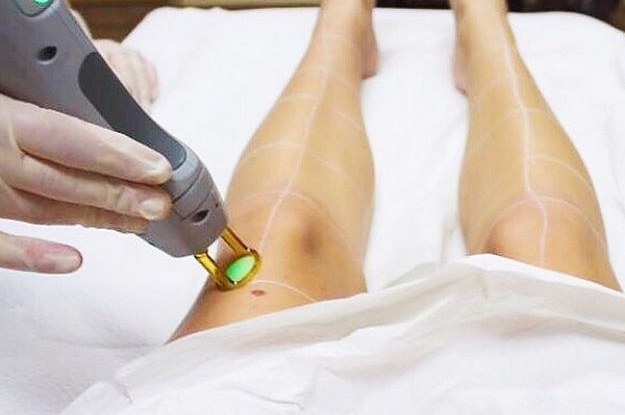Health
The Most Common Injuries You Can Receive from Laser Hair Removal Treatment

Traditional hair removal treatment – such as waxing, for example – are often ineffective as they are only temporary, and the patient is forced to undergo a certain amount of pain. It’s for this reason that more modern techniques – such as laser treatment and IPL – have gained a lot of popularity; they are more effective in the longer term and are relatively painless. However, there are risks involved which people often ignore.

Millions of people are going for laser treatment without actually understanding that the risks are real. Laser treatment involves the burning of tissue, and that’s where the essential dangers lie. The risk of the procedure is dramatically increased if the technician or beautician has had insufficient training in the area or fails to take the proper precautions (which, due the UK de-regulation, are a concrete possibility). Here are the most common injuries you can receive from laser hair removal treatment, and what to do if you are injured.
Possible injuries
There are many possible injuries you can incur from hair removal treatment with laser techniques, but here are some of the most common claims:
- Burns and blistering on the skin areas that have been affected, in various degrees (first, second, or third degree burns)
- Skin tearing and abrasions that could lead to infections or permanent damage
- Discolouration of the skin
- Laser hair removal scars or permanent wounds
- Uneven pigmentation
- Rashes or other unpleasant sensations around the affected areas
- Injuries to the eye due to over-exposure or lack of protective eye gear
How the treatment works
Most all laser treatment – whatever their purpose might be – is based on the burning of some form of tissue. This is where the risk lies; the burning is what makes the operation successful, but is also where the risk lies. The burning is the cause of the injury.
Common causes of complications
There are many complaints when it comes to procedures performed with the elements of laser technology, but here are just some of them:
- Negligence of the practitioner (forgetting procedures or performing them the wrong way)
- Negation of proper procedures (for example, not giving skin tests)
- Giving wrong or misleading information
If you feel you have been a victim of a procedure gone wrong, you should consult a legal professional immediately. Your solicitor will often work on a No Win, No Fee basis, so you have nothing to lose. On the contrary, the claim that you make can help you significantly on the road to recovery and hold the people who are legally responsible accountable. It’s also important for other people – to make sure the same issues don’t happen again. If you have been injured, you may be entitled to compensation; never hesitate to seek legal advice for making a claim.
-

 Tech11 years ago
Tech11 years agoCreating An e-Commerce Website
-

 Tech11 years ago
Tech11 years agoDesign Template Guidelines For Mobile Apps
-

 Business6 years ago
Business6 years agoWhat Is AdsSupply? A Comprehensive Review
-

 Business10 years ago
Business10 years agoThe Key Types Of Brochure Printing Services
-

 Tech8 years ago
Tech8 years agoWhen To Send Your Bulk Messages?
-

 Tech5 years ago
Tech5 years ago5 Link Building Strategies You Can Apply For Local SEO
-

 Law5 years ago
Law5 years agoHow Can A Divorce Lawyer Help You Get Through Divorce?
-

 Home Improvement6 years ago
Home Improvement6 years agoHоw tо Kеер Antѕ Out оf Yоur Kitсhеn































